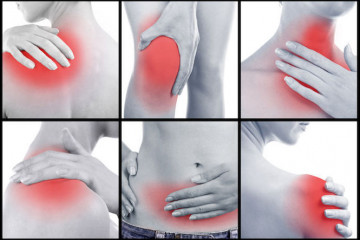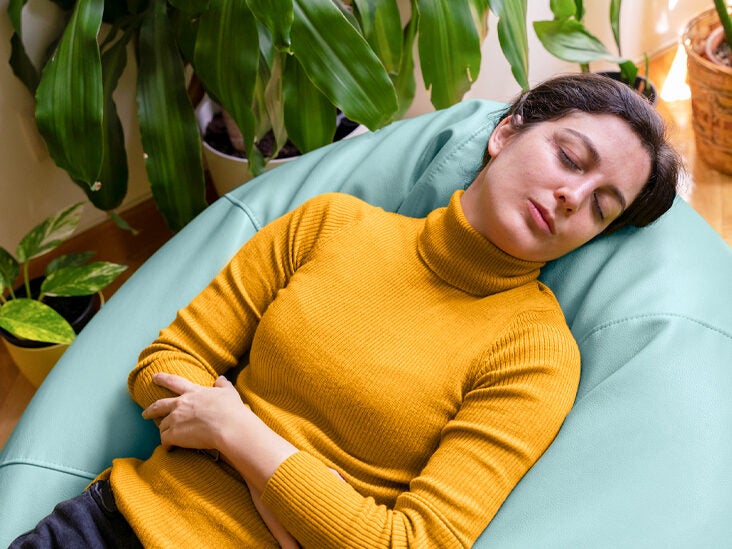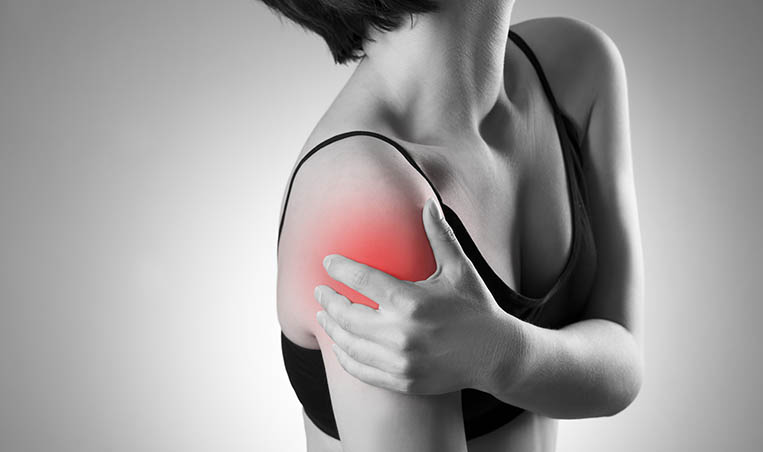NSAIDS or Nonsteroidal Anti inflammatory Drugs are commonly prescribed medications for the inflammation of arthritis and other body tissues, such as in tendinitis and bursitis. They also are used for minor aches and pains.
Thank you for reading this post, don't forget to subscribe!Examples of NSAIDs include:
- aspirin,
- indomethacin,
- ibuprofen,
- naproxen,
- piroxicam,
- nabumetone
- Celecoxib….etc.
NSAIDs are available by prescription or without a prescription (OTC – over-the-counter). They also are ingredients in many over the counter medications used for colds and minor aches and pain. They are administered orally as capsules, tablets, liquids, or by injection. Although not included in this review, NSAIDs also are used as eye drops for eye inflammation.
Side effects of NSAIDS or Nonsteroidal Anti inflammatory Drugs
The major side effects of NSAIDs are related to their effects on the stomach and bowels (gastrointestinal system). Some 10% to 50% of patients are unable to tolerate treatment with NSAIDs because of side effects, including abdominal pain, diarrhea, and upset stomach. Approximately 15% of patients on long-term treatment with NSAIDs develop a peptic ulcer (ulceration of the stomach or duodenum). Even though many of these patients with ulcers do not have symptoms and are unaware of their ulcers, they are at risk of developing serious ulcer complications, such as bleeding or perforation of the stomach.
The annual risk of serious complications is 1% to 4% with chronic treatment with NSAIDs. The risk of ulcers is higher in the elderly and individuals with rheumatoid arthritis, and those also taking steroid-containing medications, and individuals with a prior history of bleeding ulcers. Taking blood thinning medications (anticoagulants), such as warfarin, and heparin, does not cause NSAID-related ulcers, but rather they increase bleeding if NSAID-induced ulcers occur.
A prior history of ulcers is the most important predictor of NSAID-induced ulcers. Patients with heart disease who are taking aspirin for prevention of heart attacks also are at risk, and the risk of bleeding ulcers doubles if aspirin is combined with other NSAIDs.
How do NSAIDS or Nonsteroidal Anti inflammatory Drugs work, and how do they cause stomach problems?
Prostaglandins are natural chemicals that serve as messengers to promote inflammation. By inhibiting the body’s production of prostaglandins, NSAIDs decrease inflammation and the symptoms and signs of inflammation, such as pain, tenderness, and fever. However, certain prostaglandins also are important in protecting the stomach lining from the corrosive effects of stomach acid, as well as playing a role in maintaining the natural, healthy condition of the stomach lining. These protective prostaglandins are produced by an enzyme called Cox-1. By blocking the Cox-1 enzyme and disrupting the production of prostaglandins in the stomach, NSAIDs can cause ulcers and bleeding. Some NSAIDs have less effect on prostaglandins in the stomach than others, and, therefore, may have a lower risk of causing ulcers, but the increased risk of ulcers still exists.
What are treatments for a stomach ulcer?
Treatment of NSAID-induced ulcers involves discontinuing the NSAID, reducing stomach acid with H2-blockers, for example, cimetidine, famotidine, and nizatidine, or, more effectively, with proton pump inhibitors, such as omeprazole or synthetic prostaglandins, specifically misoprostol (side effects of these antacids and H2-blockers is an other issue?).
Since H. pylori bacteria is a common cause of ulcers, eradication of the bacteria with a combination of antibiotics also may promote ulcer healing.
Is it possible to prevent NSAIDS or Nonsteroidal Anti inflammatory Drugs-related ulcers and complications?
NSAIDs are valuable medications for patients with arthritis and other inflammatory conditions. For patients who need long-term NSAID treatment, several steps can be taken to decrease NSAID-related ulcers and complications.
The risk of ulcers and complications tends to be dose related. Therefore, the smallest effective dose of NSAIDs is taken to minimize the risk. NSAIDs might be selected that have less effect on the stomach’s production of prostaglandins. Some of these NSAIDs are called selective Cox-2 inhibitors. Cox-2 inhibitors block the Cox-2 enzyme that produces prostaglandins of inflammation without blocking the prostaglandin production of Cox-1 in the stomach. The only available selective Cox-2 inhibitor is celecoxib.
Taking NSAIDs with meals may minimize stomach upset with NSAIDs, but not ulcerations.
A synthetic prostaglandin, misoprostol (Cytotec), can be administered orally along with NSAIDs. Misoprostol has been shown to decrease NSAID-induced ulcers and their complications. The side effects of misoprostol include abdominal cramps and diarrhea. Misoprostol also is avoided in pregnant women because it can cause uterine muscle contractions and miscarriage. Standard doses of H2-blockers and proton pump inhibitors reduce the risk of NSAID-induced ulcers.
Allopathic scientists are actively searching for safer NSAIDs that are effective anti-inflammatory agents but are not ulcer producing. In the meantime, patients who need long term NSAID treatment should be closely supervised by a doctor. Patients at risk of NSAID-induced ulcers and complications should consider preventive measures, such as using NSAIDs with less prostaglandin disrupting effects on the stomach and using proton pump inhibitors, H2-blockers, or misoprostol. Stopping smoking, and eradicating H. pylori also may be helpful since both smoking and infection with H. pylori themselves cause ulcers.
While in Homeopathy there are many painkiller having different qualities (antiinflammation, antibiotic, antiviral etc) , the list is very long, here are very few of them:
Kalmia Latifolia
Angina pectoris. Blindness. Bright’s disease. Dropsy. Dysmenorrhea. Gastralgia. Globus hysterics. Gout. Headache. Heart, disease of. Herpes zoster; neuralgia after. Keratitis. Leucorrhoea. Locomotor ataxia. Lumbago. Neuralgia. Paraplegia. Ptosis. Pregnancy, albuminuria of. Retinitis albuminuria. Rheumatism. Rumination. Scleroderma. Sclerotitis. Somnambulism. Sun-headaches. Syphilitic sore throat. Tinnitus. Tobacco, effects of. Vertigo. Vomiting.
Kali Bichromicum
Acne. Anemia. Asthma. Blotches. Bone, nodes on, exostoses. Bronchitis; croupous. Burns. Cachexia. Catarrh. Climacteric flushes. Coccygodynia. Conjunctivitis. Constipation. Cornea, opacities of. Coryza. Descemetitis. Duodenum, ulcers of. Dyspepsia. Ears, pains in; inflammation of, internal and external. Emaciation. Epilepsy. Epistaxis. Eyes, iritis; keratitis. Farcy. Gastric ulcer. Glanders. Gleet. Gout. Hay fever. Headache. Intermittent fever. Intestines, ulceration of. Lumbago. Lupus. Measles. Mumps. Neuralgia. Nightmare. Nodes. Nose, pressure at root of; soreness of. Ophthalmia. Ozaena. Polypus. Post-nasal catarrh. Pruritus vulvae. Rheumatism. Rhinitis, atrophic. Sciatica. Scrofula. Smell, illusions of. Sun-headache. Sycosis. Syphilis. Throat, hair sensation in; sore. Tobacco, intolerance of. Trachea, affections of. Ulcers. Urethritis. Warts. Whooping-cough.
Kali Carbonicum
Amenorrhea. Anemia. Asthma. Axilla, perspiration of. Back, aching. Biliousness. Bronchitis. Catarrh. Change of life. Chilblains. Clavus. Cold. Consumption. Cough. Debility. Dropsy. Dysmenorrhea. Dyspepsia. Ear, inflammation of. Eyes, inflammation of; edema around. Face, blotches on. Fear. Freckles. Gastralgia. Hemorrhage. Hemorrhoids. Hair, affections of. Headache. Heart, affections of. Hip-joint disease. Hydrothorax. Hysteria. Kidneys, affections of. Knee, affections of; white swelling of. Larynx, catarrh of. Leucorrhoea. Liver, affections of. Lumbago. Menorrhagia. Metrorrhagia. Pleurisy. Pleurodynia. Pregnancy, disorders of. Proctalgia. Sciatica. Sleeplessness. Spinal irritation. Stomach, affections of. Throat, sore. Toothache. Typhoid. Urine, frequent passage of. Urticaria. Uterus, cancer of. Vertigo. Wens. Whooping-cough.
Arnica Montana
Abscess. Apoplexy. Back, pains in. Baldness. Bed-sores. Black-eye. Boils. Brain, affections of. Breath, fetid. Bronchitis. Bruises. Carbuncle. Chest, affections of. Chorea. Corns. Cramp. Diabetes. Diarrhea. Dysentery. Ecchymosis. Excoriations. Exhaustion. Eyes, affections of. Feet, sore. Hematemesis. Hematuria. Headache. Heart, affections of. Impotence. Labor. Lumbago. Meningitis. Mental alienation. Miscarriage. Nipples, sore. Nose, affections of. Paralysis. Pelvic hematocele. Pleurodynia. Purpura. Pyemia. Rheumatism. Splenalgia. Sprain. Stings. Suppuration. Taste, disorders of. Thirst. Traumatic fever. Tumors. Voice, affections of. Whooping-cough. Wounds. Yawning.
Coffea Cruda
Apoplexy. Asthma. Aural neuralgia. Colic. Convulsions. Diarrhea. Ecstasy. Excitement. Headache. Heart, hyperesthesia of. Hernia. Hyperesthesia. Hysteria. Intermittent. Joy, ill-effects of. Labor pains. Metrorrhagia. Neuralgia. Over-sensitiveness. Sciatica. Shock. Sleeplessness. Toothache.
Chamomilla
Acidity. Anger. Asthma (from anger). Blepharospasm. Catarrh. Coffee, effects of. Colic. Convulsions. Cough. Cramp. Croup. Dentition. Diarrhea. Dysmenorrhea. Dyspepsia. Earache. Eyes: blepharitis; ophthalmia. Eructation. Erysipelas. Excitement. Excoriation. Fainting fits. Fevers. Flatulence. Flatulent colic. Gout. Gum-rash. Headache. Hernia. Hysterical joint. Influenza. Jaundice. Lientery. Labor: disorders of; after-pains. Mastitis. Menstruation, disordered. Miliary eruption. Milk-fever. Miscarriage. Mumps. Neuralgia. Parotitis. Perichondritis. Peritonitis. Pregnancy, disorders of. Red-gum. Rheumatism. Salivation (nocturnal). Sciatica. Screaming. Sensitiveness. Spasms. Speech, affections of. Toothache. Ulcers. Uterus, diseases of. Waking, screaming on. Whooping cough.
Bryonia Alba
Alcoholism. Amenorrhea. Anger, effects of. Aphthae. Apoplexy. Asthma. Bilious attack. Brain, affections of. Breast, inflamed. Bronchitis. Cancer. Chill, effects of. Chlorosis. Constipation. Consumption. Coryza. Cough. Dentition. Diaphragm, rheumatism of. Diarrhea. Dropsy. Dyspepsia. Eczema. Enteric fever. Eruptions. Gastro-enteritis. Hemorrhages. Hands, swollen. Headache. Heart, inflammation of. Hernia. Hiccough. Hydrocele. Hydrocephalus. Influenza. Intermittent fevers. Jaundice. Joints, pain in. Lactation, disorder of. Liver, disorders of. Lumbago. Measles. Meningitis. Menstruation, vicarious. Miliaria. Milk fever. Myalgia. Nephritis. Nose-bleed. Peritonitis. Phlegmasia alba dolens. Pleurisy. Pleurodynia. Pneumonia. Pregnancy, morning cough of; sickness of. Puerperal fever. Pyuria. Relapsing fever. Remittent fever. Rheumatism. Scarlatina. Screaming. Side, pain in. Sleep, anxious dreams in. Spina bifida. Stiff-neck. Suppressed eruptions, bad effects of. Thirst. Tongue, coated. Toothache. Trachea, pain in. Vertigo. Waking, starts and screams on. Water-brash. Whooping-cough. Yellow fever.
Rhus toxicodendron
Abortion. Acne rosacea. After-pains. Amenorrhea. Anus, fissure of. Appendicitis. Appetite, lost. Beri-beri. Bones, pains in. Caecum, inflammation of. Chilblains. Circulation, feeble. Cyanosis. Dengue fever. Diarrhea; chronic. Diphtheria. Dysentery. Dysmenorrhea. Dyspepsia. Ear, eczema of. Ecthyma. Enteric fever. Erysipelas. Erythema nodosum. Exostosis. Eyes, inflammation of; choroiditis; sight, weak. Feet, pains in. Gastro-enteritis. Glands, inflammation of. Gout. Hemorrhages. Hemorrhoids. Hands, pains in. Hernia. Herpes. Herpes zoster. Housemaid’s knee. Hydrocele. Influenza. Intermittent. Jaw, cracking in. Liver, abscess of. Lumbago. Measles. Menorrhagia. Metrorrhagia. Neuralgia. Ovary, tumor of. Paralysis. Para phimosis. Pemphigus. Periosteum, pains in. Pleurisy. Pleurodynia. Pneumonia; typhoid. Ptosis. Pyemia. Redgum. Relapsing fever. Rheumatism. Scarlatina. Sciatica. Sleep, restless. Small-pox. Spine, diseases of. Sprain. Strictures. Tongue, affections of. Typhus fever. Urticaria. Warts. Wens. Yawning.
Dulcamara
Adenitis. Angina faucium. Aphonia. Bladder, affections of. Blepharon ophthalmia. Catarrh. Cholera. Crusta lactea. Diarrhea. Dropsy. Dysentery. Emaciation. Exostoses. Hemorrhage. Hemorrhoid. Hay-fever. Headache. Herpes. Influenza. Irritation. Lichen. Lumbago. Measles. Meningitis. Myalgia. Myelitis. Nettle-rash. Neuralgia. Ophthalmia. Paralyses. Pemphigus. Rheumatism. Scarlatina. Scrofula. Stammering. Stiff-neck. Thirst. Tibiae, pains in. Tongue, affections of. Tonsillitis. Tumors. Typhoid. Urine, difficulty in passing; incontinence of. Warts. Whooping-cough.
Drosera
Amblyopia. Asthma. Bronchitis. Catarrh. Consumption. Cough. Coxalgia. Epilepsy. Hemorrhage. Headache. Laryngitis. Measles. Nausea. Phthisis. Sciatica. Vomiting. Whooping-cough.
To watch on YouTube Click Here.
Subscribe on www.dixecosmetics.com for latest articles.
Natrum Sulphuricum
Asthma. Biliousness. Brain, injuries of. Condylomata. Debility; of drunkards. Diabetes. Dyspepsia; of drunkards. Enuresis. Epilepsy; traumatic. Epistaxis (menstrual). Fistulous abscesses. Gonorrhoeic. Headache. Hydraemia. Influenza. Leukemia. Liver, enlarged. Malaria. Migraine. Nephritic scar Latina. Ophthalmia. Panaritium. Phlegmasia alba dolens. Photophobia. Phthisis. Sciatica. Scrofulous ophthalmia. Spleen, affections of. Sycosis. Warts.
Agaricus Muscarious
Acne rosacea. Blepharospasm. Brain, softening of. Bunion. Chilblains. Chorea. Coldness. Cough. Cramp. Delirium tremens. Dysmenorrhea. Enteric fever. Epilepsy (with great exertion of strength). Gangrene. General paralysis. Hyperpyrexia. Itching. Jaundice. Lachrymal fistula. Lichen. Lumbago. Meningitis. Myopia. Neuralgia. Numbness. Nystagmus. Phthisis. Rheumatism. Sacrum, pains in. Sebaceous tumors. Sexual excess, effects of. Spinal Irritation. Spleen, affections of. Starting. Stitch in side. Tic Convulsive. Toothache. Tremors. Typhoid fever. Typhus.

Ledum Pauluster
Ascites. Asthma. Bites. Black-eye. Boils. Bruises. Deafness. Ear, inflammation of. Eczema. Erythema nodosum. Face, pimples on. Feet, pains in; tender. Gout. Hemoptysis. Hands, pains in. Intoxication. Joints, affections of, cracking in. Meniere’s disease. Pediculosis. Priapism. Prickly heat. Punctured wounds. Rheumatism. Skin, eruptions on. Stings. Tetanus. Tinnitus. Tuberculosis. Varicella. Whitlow. Wounds.
Causticum
Acne rosacea. Agalactia. Amaurosis. Apoplexy. Arthritis deformans. Bladder, affections of. Bronchitis. Burns. Cataract. Chorea. Coccygodynia. Constipation. Convulsions. Cough. Deafness. Dentition. Diphtheritic paralysis. Ears, otorrhea. Emaciation. Enuresis. Epilepsy. Eyes, affections of. Facial paralysis. Fistula. Fistula dentals. Goiter. Hemorrhoids. Headache. Heart affections. Heel, blistered. Herpes zoster. Hip disease. Hydrogenous constitution. Impotence. Influenza. Intermittent fever. Intertrigo. Laryngitis. Lead poisoning. Leucorrhoea. Locomotor ataxia. Meniere’s disease. Menstruation, disorders of. Myalgia. Nails, crippled. Neuralgia. Nose, crusts in; acne on. Paralysis. Pemphigus. Pregnancy. Prostatitis. Ptosis. Rheumatism. Scabies. Scrofula. Skin, eruptions of. Small-pox. Stammering. Syphilis. Tendons, contracted. Throat, affections of. Tongue, affections of; paralysis of. Ulcers. Urethritis. Urine, disordered. Varicose veins. Voice, lost. Warts. Whooping-cough.
 Dr Sayyad Qaisar Ahmed (MD {Ukraine}, DHMS, Isl. Jurisprudence); Works at “senior research officer Dnepropetrovsk state medical academy Ukraine”; is a leading Homeopathic physician practicing in
Dr Sayyad Qaisar Ahmed (MD {Ukraine}, DHMS, Isl. Jurisprudence); Works at “senior research officer Dnepropetrovsk state medical academy Ukraine”; is a leading Homeopathic physician practicing in
Al-Haytham clinic Risalpur. K.P.K, Pakistan.
(0923631023, 03119884588), K.P.K, Pakistan.
